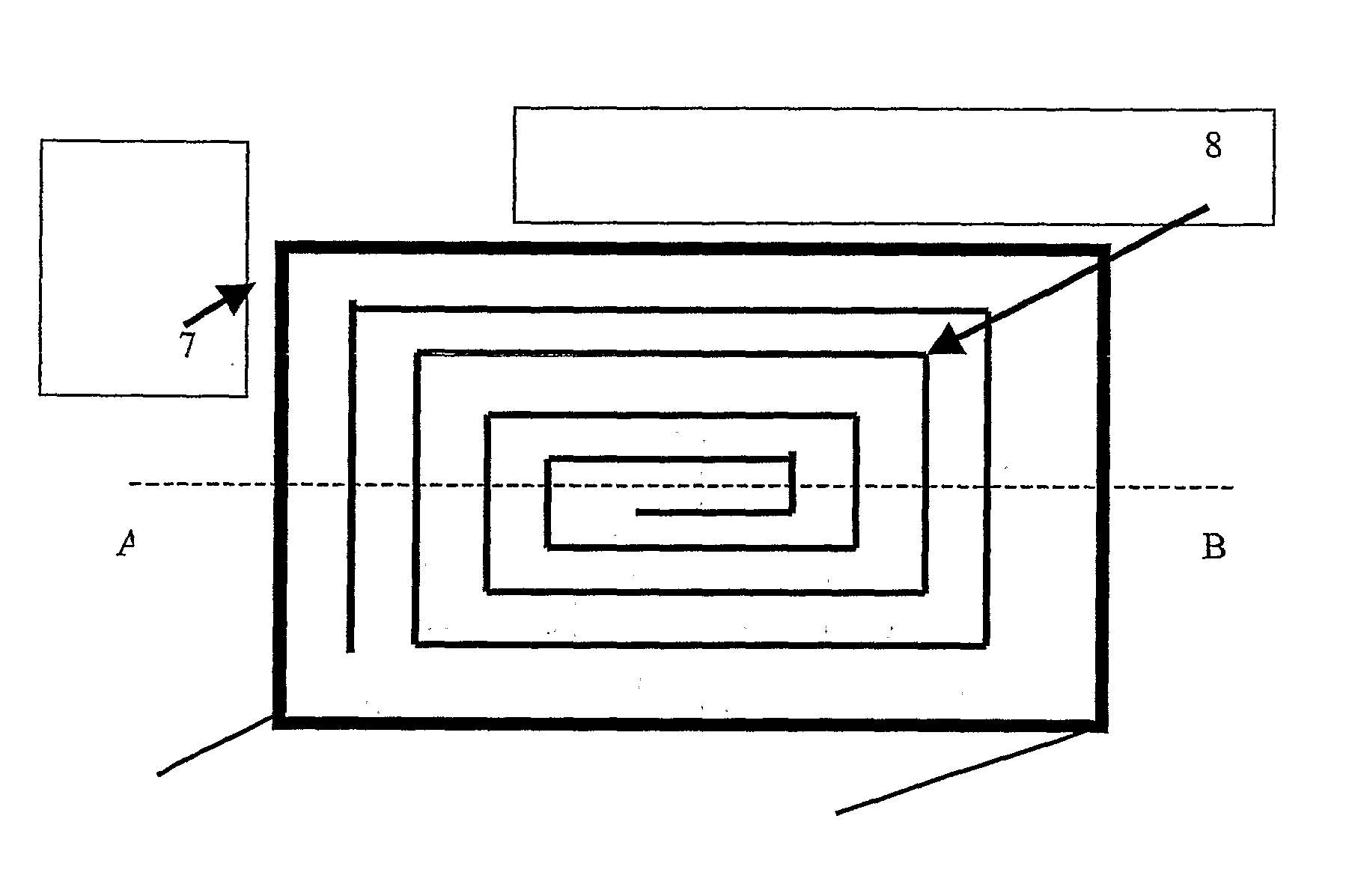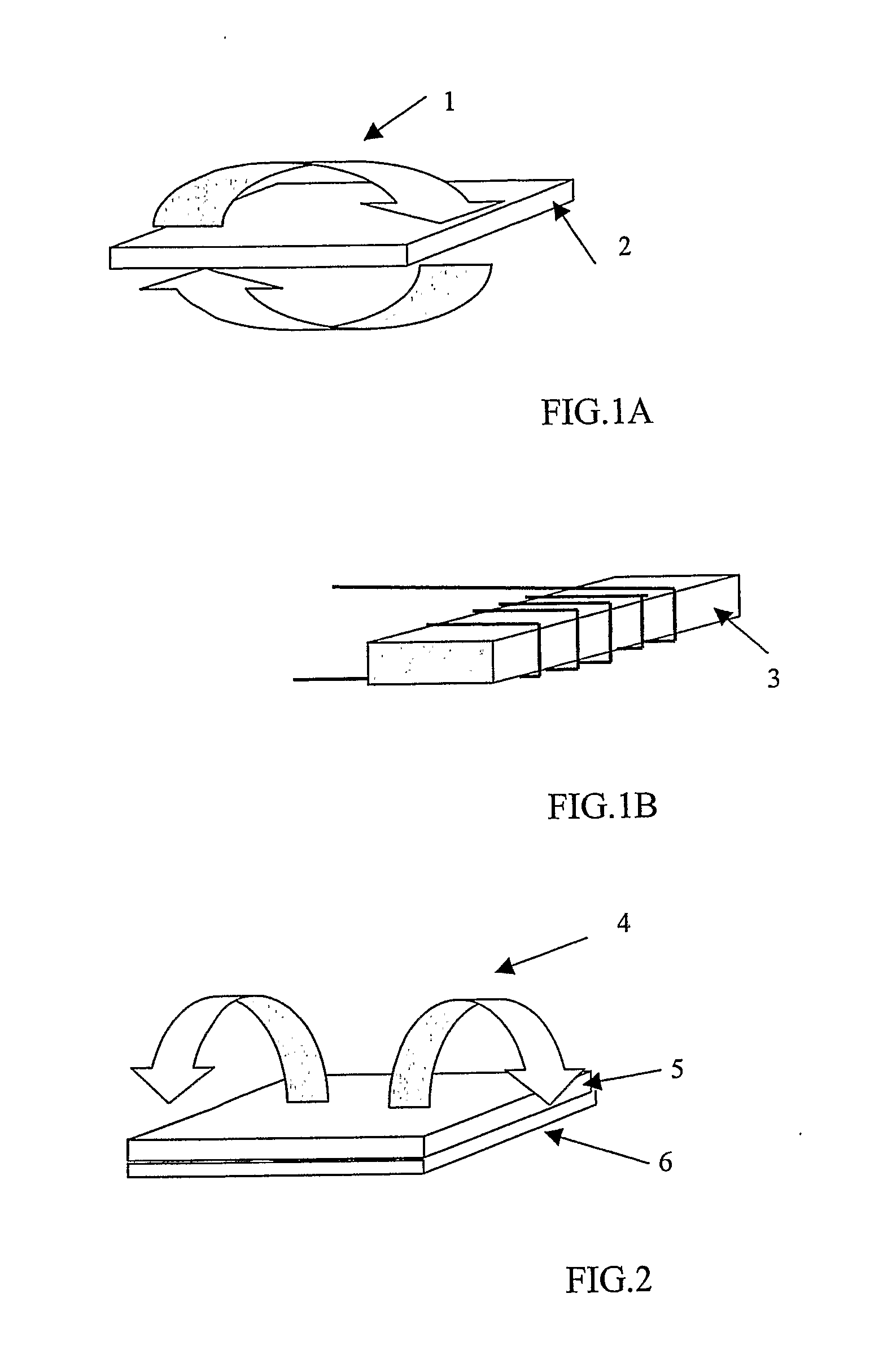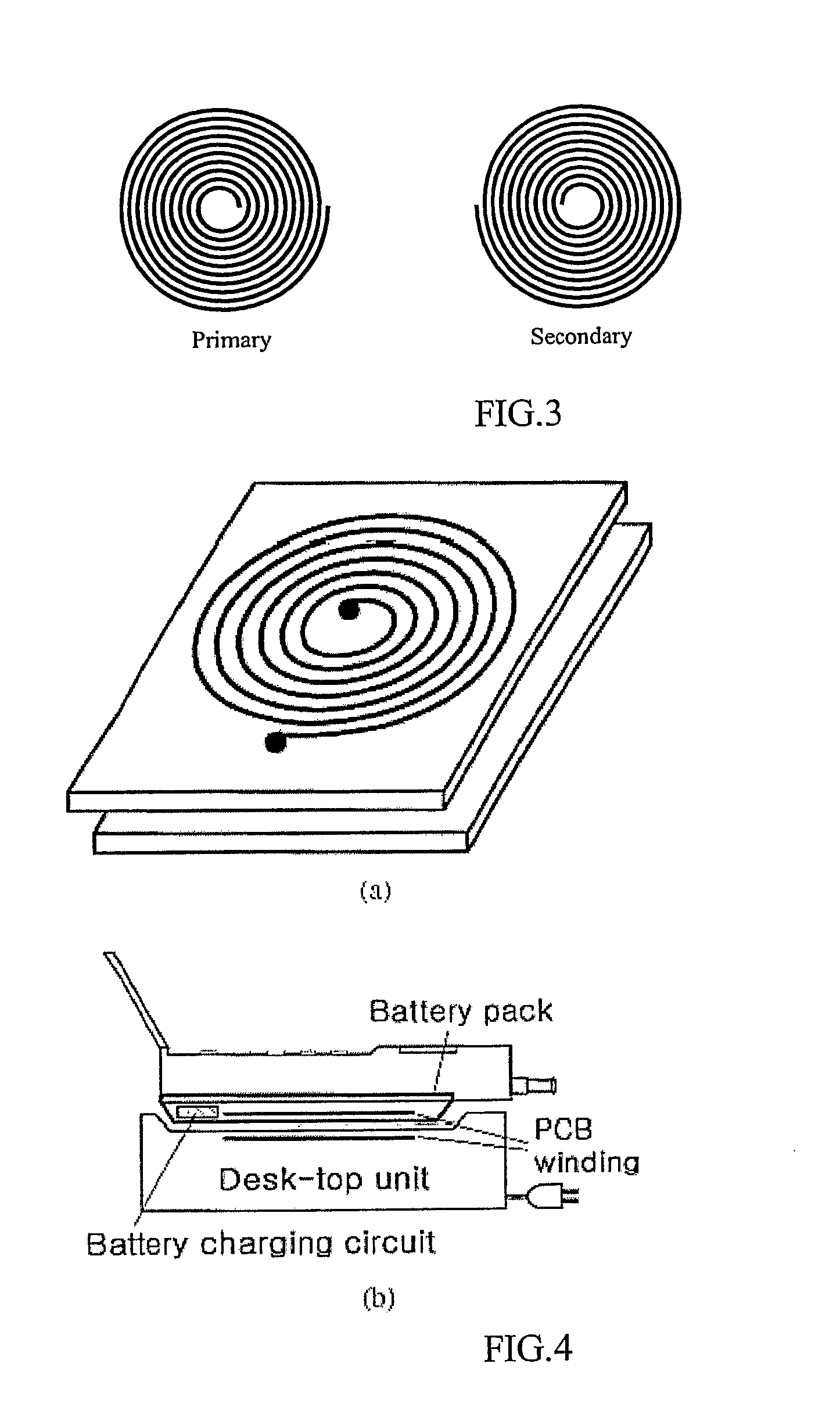Auxiliary Winding for Improved Performance of a Planar Inductive Charging Platform
a technology of inductive charging platform and auxiliary winding, which is applied in the direction of inductance, transformer, transportation and packaging, etc., can solve the problems of incorrect energy transfer and even heating effect in the metallic desk, simple inability to house electronic equipment, and serious hampered energy transfer
- Summary
- Abstract
- Description
- Claims
- Application Information
AI Technical Summary
Benefits of technology
Problems solved by technology
Method used
Image
Examples
Embodiment Construction
[0031]In order to compensate for the voltage sag phenomenon in the central area of the planar inductive battery charging platform, according to embodiments of the present invention a second auxiliary winding can be placed in the central region of the charging surface in order to boost the electromagnetic flux in that region to compensate for the voltage sag phenomenon.
[0032]FIG. 8A shows a schematic of a planar inductive charging platform based on a single planar primary winding 7 that surrounds a charging surface. In this context the term “primary” is used in the same sense as a transformer, and the energy receiving element will comprises the “secondary”. FIG. 8B shows a schematic of planar inductive charging platform with a second auxiliary winding according to an embodiment of the present invention. As can be seen from FIG. 8B, this embodiment of the present invention includes a first primary planar winding 7 that as in FIG. 8A surrounds the charging surface, but further includes...
PUM
| Property | Measurement | Unit |
|---|---|---|
| magnetic flux | aaaaa | aaaaa |
| conductive | aaaaa | aaaaa |
| polarity | aaaaa | aaaaa |
Abstract
Description
Claims
Application Information
 Login to View More
Login to View More - R&D
- Intellectual Property
- Life Sciences
- Materials
- Tech Scout
- Unparalleled Data Quality
- Higher Quality Content
- 60% Fewer Hallucinations
Browse by: Latest US Patents, China's latest patents, Technical Efficacy Thesaurus, Application Domain, Technology Topic, Popular Technical Reports.
© 2025 PatSnap. All rights reserved.Legal|Privacy policy|Modern Slavery Act Transparency Statement|Sitemap|About US| Contact US: help@patsnap.com



